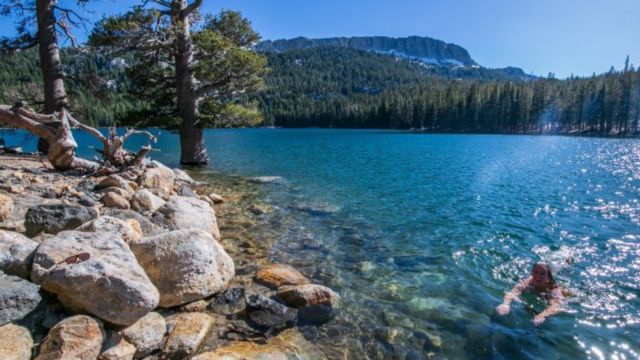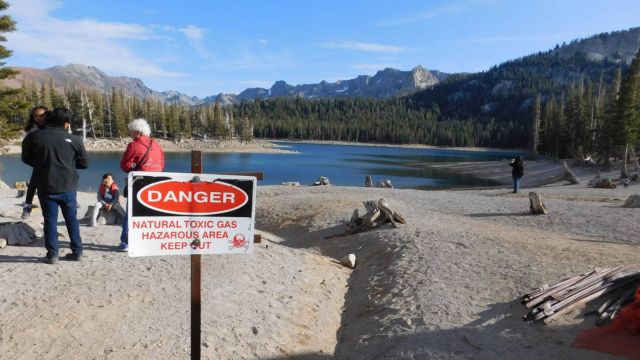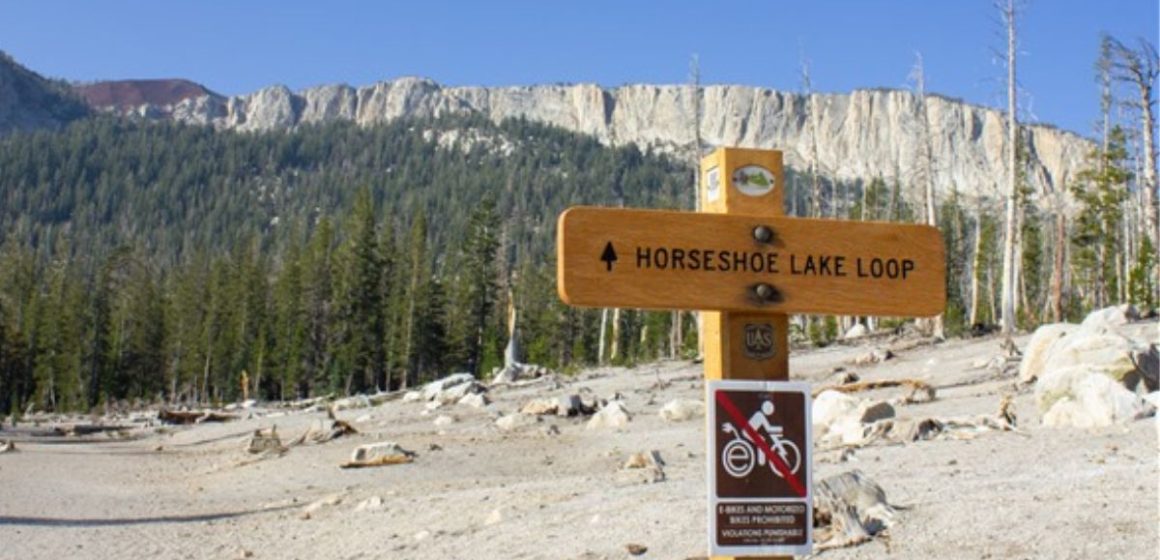Numerous magnificent lakes in California, which is well-known for its varied ecosystems and spectacular scenery, provide both inhabitants and tourists with recreational options.
But beneath these lakes’ placid exteriors is a secret peril that might seriously endanger anyone who ventures into their depths. This article will examine one of California’s most elusive lakes and expose the perils that lie beneath its placid surface.
Horseshoe Lake: The Deadly Secret of this California Lake
One of the biggest active volcanic systems in the United States is where Horseshoe Lake is located. Horseshoe Lake appears to be one of the nicest lakes on the west coast for swimming because of its calm waters, but it actually has a fatal secret.
This lake is among the most dangerous in the nation, but it’s not because of its enigmatic wildlife, erratic currents, or scorching temperatures. The secret of the lake is actually carbon dioxide, which is invisible to the naked eye.
A spooky circle of dead trees appears in front of travelers as they approach this lake. This degradation is the result of long-term disturbance of a gas reservoir.
A string of minor earthquakes that occurred in the area between May and November 1989 contributed to the release of carbon dioxide from these magma tunnels onto the surface, where it spread over the surrounding soil and uprooted some 120 acres of trees.
Horseshoe Lake was featured in a video by author and content producer Geo Rutherford (@geodesaurus), who ran a TikTok series about “spooky” lakes all across the world.

The lake and its environs are still poisonous to both people and animals today. Visitors still go to this famous location, where you may swim and take in the scenery, despite this perilous secret. Just be sure to stay away from places where carbon dioxide levels are high.
Horseshoe Lake’s poisonous gas
People may be tempted to jump into Horseshoe Lake to cool themselves when they arrive, possibly after a strenuous car journey or trek.
Even though the official Mammoth website claims that swimming in this hazardous California lake is safe, tourists should still exercise extreme caution as this is a potentially tragic location.
The hazardous gas emitted by the volcanic vents surrounding the lake can consist of 0.005% hydrogen sulfide and 98% carbon dioxide, according to the Los Angeles Times. With each breath, humans typically absorb 0.03% of carbon dioxide.

The consequences could be fatal if those levels rise to 10% or 20%. Furthermore, even tiny amounts of hydrogen sulfide might be harmful.
These gasses frequently sink and collect beneath the snow because they are denser than air. These volcanic vents may be concealed by the snow, unwittingly poisoning the surrounding environment.
Three ski patrol members discovered one of these pools in 2006, but they perished from carbon dioxide poisoning after falling into a cave.
When they plummeted through the snow, they were relocating a fence that warned skiers not to approach the poisonous gas too closely (don’t do this!). Another traveler suffered a same fate eight years later.
Be careful when you head for Horseshoe Lake
Many people come to Horseshoe Lake for a decent swim, despite its sad reality. Actually, the only lake in the Mammoth basin where swimming is allowed is Horseshoe Lake.
It features a broad beach from which kayaks and paddleboards can be launched or lounged on. There are many hiking trails to choose from, as well as a 7-mile circular trail that is ideal for mountain biking.
According to the U.S. Geology Survey (USGS), the area is safer during the summer when people are more eager to go swimming.
However, carbon dioxide levels are far worse in the winter. Always follow the signs that block off the hazardous volcanic vents, regardless of when you visit.
There are a few safety measures you can take if you intend to swim at Horseshoe Lake.
Visitors can protect themselves by being extremely mindful of their sense of smell in addition to following conventional water safety precautions like wearing a life jacket, never swimming alone, and keeping youngsters at arm’s length from an adult.
Source: Explore



Leave a Reply